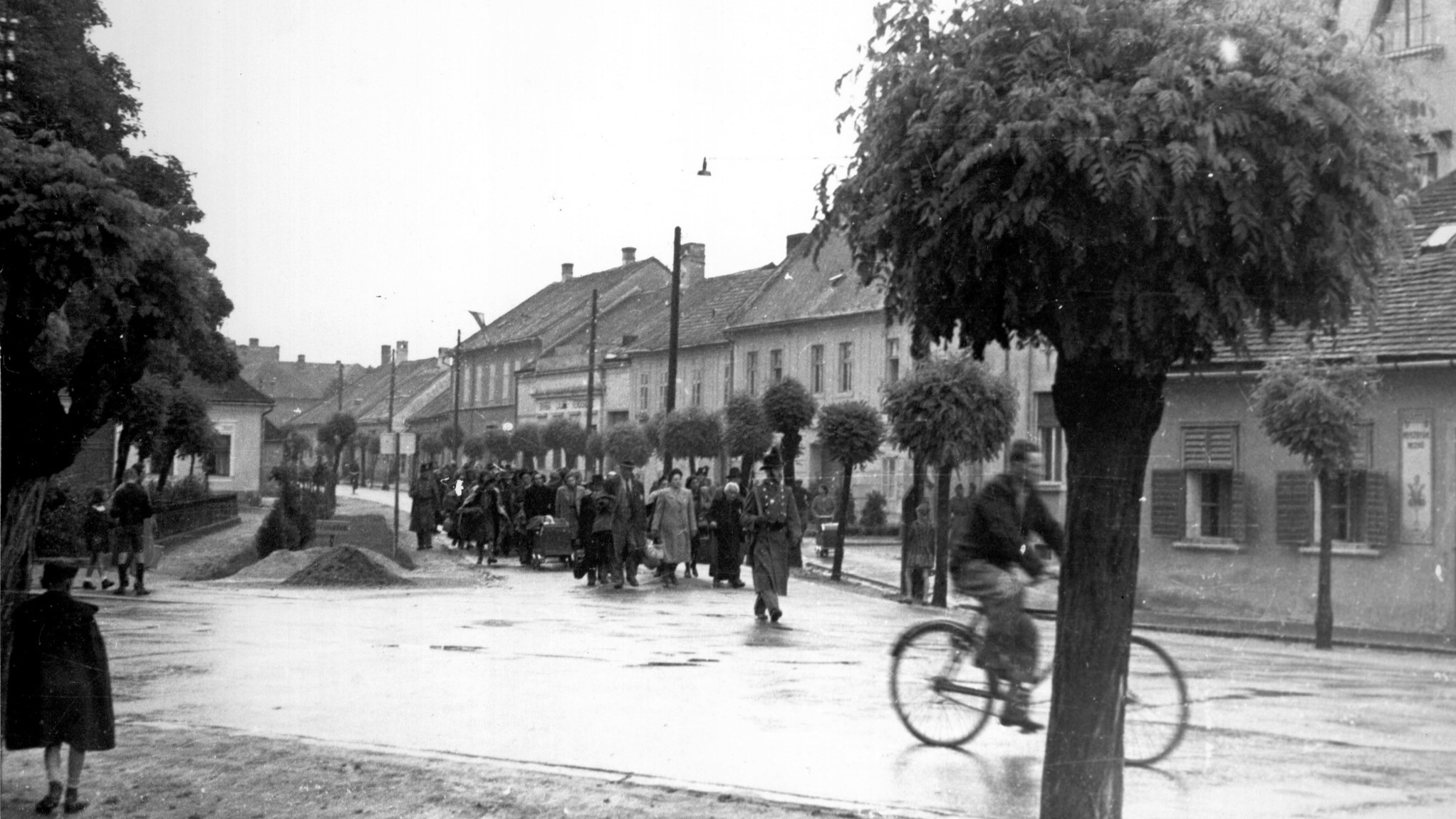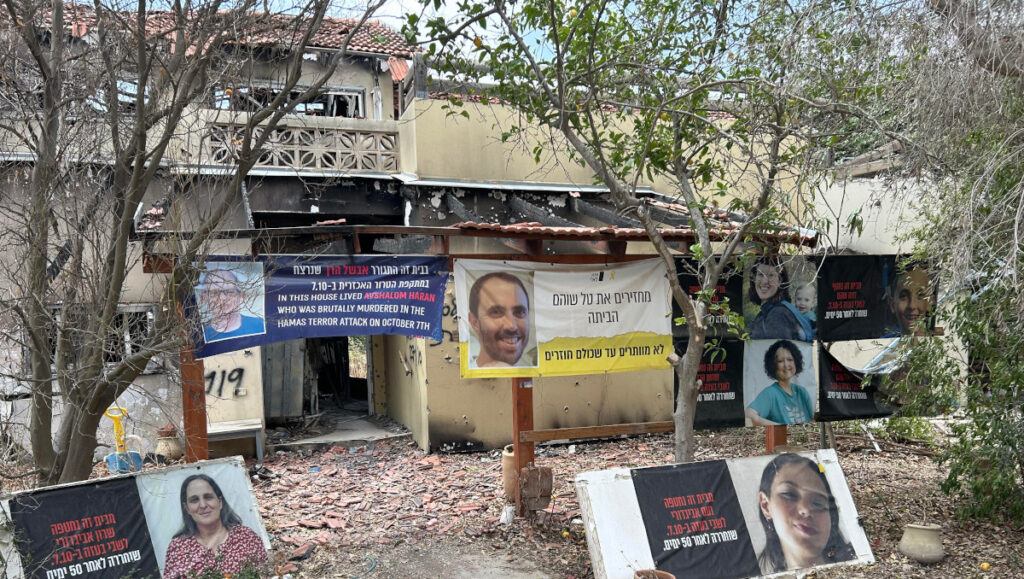The following is an edited and abridged version of a lecture delivered by the author at the 6–7 November conference titled Holocaust and the Law organized by the Mathias Corvinus Collegium in Kolozsvár (Cluj-Napoca, Romania), to mark the beginning of the Holocaust in Transylvania.
Today politics is largely a legal issue, but this has not always been the case. Eighty years ago, the world was a much less regulated, and therefore more cruel and unjust place. Although the answer may seem obvious at first, it is worth asking the question on the occasion of the eightieth anniversary: was the 1944 Holocaust in Hungary ‘legal’?
I am not a legal scholar, but I would argue that the Holocaust in Hungary was not only an ad hoc, chaotic bloodbath, but for the most part it was part of an elaborate ploy designed to conceal the intentions of its perpetrators and to confuse its victims. In what follows I would like to describe briefly how they managed to create this contradiction, what role law played in all this, and what effect it had on the situation of Hungarian Jewry.
First, let’s take a look at Hungarian Jews. While I’m not trying to make any generalizations, Hungarian Jews were generally known for their assimilated and law-abiding nature. Hungarian Jews, by and large, saw themselves as loyal Hungarian citizens and followed the law of the land to the letter. This was part of a well-rehearsed strategy on the part of their leaders. Between the emancipation of Hungarian Jewry and its nearly complete annihilation, Hungarian Jewish leaders experienced various levels of antisemitism. For most of their history, they could and did turn to the state authorities to ease their suffering. This strategy, useful during the previous decades, turned self-destructive in 1944–45. After the German occupation of Hungary a number of laws and regulations were introduced in quick succession, designed not only to rob Hungarian Jews of their material wealth and dignity, but also of their life.
The question of legality yields interesting results when viewed through the prism of the Holocaust in Hungary. The Holocaust in Hungary was ostensibly lawful to a large extent, but not in its entirety and certainly not in its genesis. Following the German occupation, the more or less democratically elected Hungarian government was restructured, and the outwardly pro-German, but in practice pro-Allies Prime Minister Kállay was forced underground and then into deportation. The last legitimate Hungarian government was thus elected in May 1939, and in March 1944 it ceased to exist in its previous form. All government action thereafter can be traced back at least in part to the 1944 invasion that seriously violated Hungarian sovereignty, and as such cannot be considered lawful.
The public was, of course, only moderately informed of all this, even if any reasonable observer could grasp what was happening to the country. But German troops did not appear in certain parts of the country until months later. In some parts of the public administration the Germans and the pro-German government carried out a major clean-up, while in other places almost everyone was left in place. It would be logical to argue that in a small town where no German soldiers were seen until May or June 1944, and where the positions of the local administration were not touched, life went on as usual and serious legal violations were not perceived.
‘The government had lulled Hungarian Jews into a false sense of security with a series of misleading messages’
Hungarian Jews, on the other hand, faced serious violations of their legal security both before and during the German occupation, and from their point of view it was quite irrelevant whether they were oppressed by the democratically elected Hungarian government or by the puppet government set up after the German occupation. However, their situation naturally became much worse after the German occupation.
The government had lulled Hungarian Jews into a false sense of security with a series of misleading messages until the trap closed. Hungarian Jews cannot be blamed for trusting their government. No sane person would willingly assume that his family members or himself were about to be murdered by their own government. Therefore, the Hungarian Jewry’s respect for the law must be emphasized without any accusatory tone. In his memoirs, Rabbi Ödön Szabó recalls an episode when, during the labour service, he suggested to his fellow Jews that they tie up their guards and flee to Romania. To his shock, his fellow servicemen were offended and threatened to denounce him. Even when their very lives were at stake and their government was trying to exterminate their families, their respect for the law was too strong to be disregarded.
The civil servants of the Hungarian state took a strict oath to protect the lives of Hungarian citizens when they were sworn in. This oath was not kept by the majority, with a few brave exceptions, after the German occupation. Hungarian civil servants were allowed to resign or take sick leave after the occupation if they did not want to participate in the Holocaust. (This statement is true even if should be added that in the eastern parts of the country, which were declared to be military operational areas, resignation was a more complicated act.) This means that no public servant could credibly hide behind the excuse that they were just doing their job.
Finally, let me refer to the contrast that characterized the situation of Hungarian Jews and the law during the Holocaust. The law was used in such a way that its observance helped the perpetrators and, at the same time, worsened the situation of the victims. Consequently, Jews who obeyed the law were often less likely to survive than those who broke it.
Let me offer some examples. During the labour service (munkaszolgálat in Hungarian), both guards, that is the keretlegények, and Jews were subject to the so-called Rules of Service. This document made it clear that soldiers were not allowed to hit each other, and would be punished if they did so. If a labour serviceman hit an officer, he could even be shot dead. But if a guard hit the labour serviceman, nothing happened to him. The labour servicemen received the most severe punishments for the slightest disobedience. The guards, on the other hand, often had even murders overlooked. This was the case even though the Rules of Service applied to both categories.
Another good example is the case of the Jewish councils. The Jewish councils were Jewish self-governing organizations whose purpose was essentially to facilitate the Holocaust on the part of the Germans. Most Jewish councils followed the word of the law, right up to the point of deportation. This was not a good tactic. However, those Jewish councils that went down the path of evading the law, bribing, resisting and smuggling, often achieved more than their law-abiding counterparts. Of course, they could not change the course of events either, and at the end of the day, they met the same fate as their law-abiding counterparts.
The question of the Holocaust and the law is still one that needs to be further investigated. The legality of Jewish councils and Jewish police forces should be examined, as should the legality of certain measures taken by the Arrow Cross government. Punitive and military law should be analysed in the context of the unarmed labour service. We need further, comprehensive studies about the functioning of the post-war people’s courts. In short, the issue of the Holocaust and the law provide grounds for further fruitful and much needed research and it is very appropriate that MCC Kolozsvár decided to organize a conference about the topic, eighty years after the tragic events.
Related articles:








